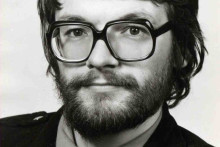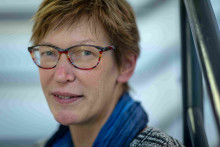We are moved by the sad news that recently Professor Huibert Kwakernaak (Huib) passed away at the age of 87 years. The impact of Huib as a professor in Applied Mathematics cannot be overestimated. Huib completed his doctoral thesis Optimal Control with random Inputs in 1963 at the University of California in Berkeley. Thereafter he worked as an Associate Professor at the Technical University Delft.
Huib came from Delft, to Twente in 1970, together with Rens Strijbos, where he founded the research group Systems and Control, nowadays MAST. His initial appointment was Professor Stochastic Mathematical Physics. With Arun Bagchi, Geert Jan Olsder (till 1982), Arjan van der Schaft, Henk Nijmeijer, Jan Willem Polderman, Hans Zwart, and, later, his former PhD student Gjerrit Meinsma, the group grew in scientific reputation to the point that it belonged to the top of the world in Systems and Control.
Emphasis on quality
What counted for Huib was ‘quality’. Indeed, all of these appointments were not necessarily in line with his own research interests. In fact, Huib made it very clear that a newly appointed staff member should develop his/her own research line. This emphasis on quality was also expressed in his view on teaching: you can only be a good teacher if you fully understand the subject.
Huib was a nationally and internationally leading control scientist. He was a Fellow of the IEEE, a Fellow of IFAC, and held the Distinguished Service Award of IFAC. His book with Ravi Sivan on linear optimal control theory, written in his early days in Twente and published in 1972, has been the leading international reference on this subject for many years. Huib also served as the director of the national research school on systems and control (DISC).
In a sense Huib was a pragmatic engineer. At the same time, he did not have the slightest fear for abstract mathematics as long as he could use it in his own research. At such occasions he could evolve from an ignorant beginner to a leading expert within weeks.
Determining a grade
Huib was a dedicated teacher, deeply respected by the students. He acted as responsible professor for more than 130 students and quite a few graduate students. If the daily supervision was done by one of the other group members, then Huib confined himself to his legal duties as a full professor and made sure that all credits went to the actual supervisor.
Huib introduced a special way of determining the graduation grade. The discussion about the grade was done in the presence of the student, a very transparent procedure. At one occasion, the student was awarded a seven – a nice grade, but the student objected. He pointed out that the central theorem, including its nontrivial proof, was completely his work. Huib asked the supervisor whether that was true and the supervisor confirmed the claim made by the student. In his reaction, Huib was just happy to change the grade into an eight.
Classical professor and early adapter
Huib took his responsibility as a thesis advisor very seriously. His PhD students invariably experienced his punctuality and reliability. He would always meticulously read the drafts of his PhD students. In a sense, Huib was a classical professor, his PhD students were not expected to approach him on a first name basis. On the other hand, one PhD student remembered that Huib called him on the day after his defence that now that he was a doctor, he could call him Huib. One other PhD student who was externally supervised explained that at his thesis defence Huib, being the official promotor, had to read the laudatio. After having fulfilled his duty Huib publicly added that his only contribution was indeed reading the laudatio after which he expressed his sincere appreciation to the actual supervisor.
Huib was what we would now call an early adapter. He could not wait to apply and use new technologies. In that spirit he regularly took the stroll to the computer science building to use their modern laser printers long before the existence of such printers was considered relevant at the Applied Mathematics department. He contributed himself by introducing a sophisticated, yet user-friendly paper upload system, which he baptised Paper Plaza, initially for the journal Automatica. Later Paper Plaza was adopted by many conference organisations. Huib, together with Pradeep Misra (Emeritus Wright State University), continued to maintain and further develop Paper Plaza until last year.
We remember Huib as a very dedicated scholar with great impact on the local, national and international level.
Henk Nijmeijer, UT 1983-2000
Jan Willem Polderman, UT 1987-2023
Arjan van der Schaft, UT 1982-2005
Hans Zwart, UT 1988-present
Gjerrit Meinsma, former PhD student of Huib, UT 1997-present






